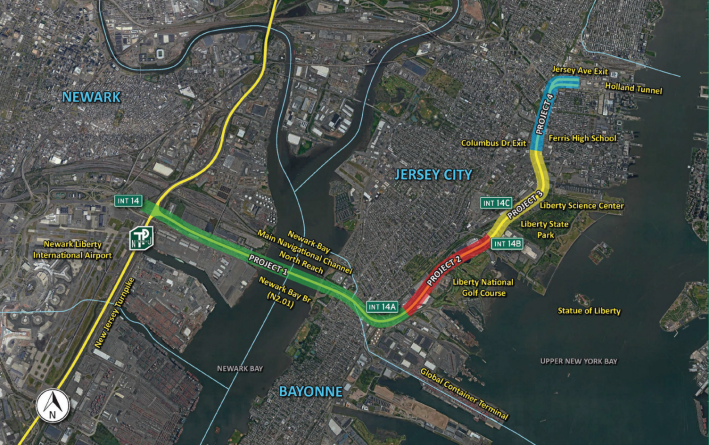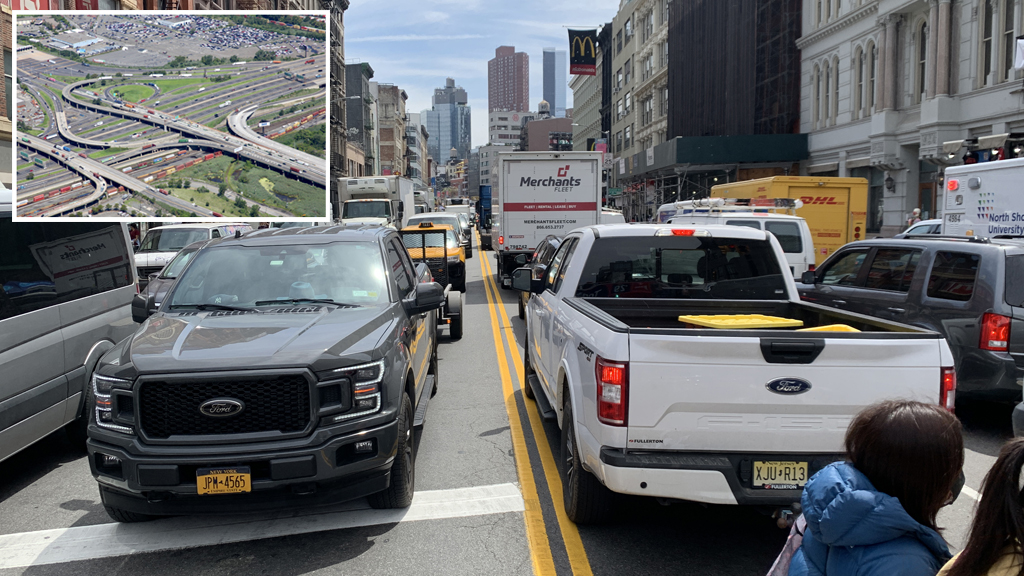Last week, thousands of commuters were stranded for hours — some overnight — when the Northeast Corridor shut down in the middle of the evening rush hour due to Amtrak-related equipment issues.
Disasters like these have become a pattern for New Jersey commuters, who suffer severe delays with disappointing regularity. There were 328 non-Amtrak-related NJ Transit train cancellations last month, while the system's “mean distance between failures” — the average distance traveled by vehicles before maintenance or repairs are required — dropped to the lowest point on record.
Put simply, New Jersey's transit system is falling apart — from lack of funding and from a lack of interest and prioritization from our governments. Instead of working together to fix these issues, our leaders point fingers at each other. On top of that, roadway fatalities in New Jersey are higher than ever, vehicle ownership costs are skyrocketing and climate disasters are growing stronger and more frequent.
Yet rather than address that problem by investing in safe, affordable, climate-friendly transportation, Gov. Phil Murphy wants to spend over $10 billion to widen a highway in an environmental justice community — while asking transit riders to shoulder a 15 percent fare hike. That is unjust and unacceptable.
After developing plans to widen the road in secret for five years, the NJ Turnpike Authority just hosted two public information sessions, neither of which included public, on-the-record comments or questions. Many New Jerseyans feel totally left out of the process. Rather than authentic public engagement, they are merely hearing about what the Turnpike Authority has already decided. It feels like decision-makers simply don’t care about our concerns.
The NJTA did not seriously consider alternatives, such as mass transit or freight rail — or even repairing the bridge rather than tearing down and rebuilding it even bigger. Even more absurd, the phrase “induced demand," a transportation phenomenon understood since 1930, does not appear once in the project’s Environmental Impact Statement (EIS), even though the Turnpike Authority’s own analysis shows the project will result in more vehicles than the "no-build" alternative.
Despite this, the EIS brazenly conclude that this project will have "no significant impact."
Tell that to the families breathing the increased diesel exhaust from all the additional trucks this widened highway will bring. Tell that to the grieving mothers when their children are killed by the additional cars speeding through their neighborhoods. No one wants to live next to a highway. They are loud, ugly and flood local streets with fast-moving cars. The local noise and air pollution they produce reduces school performance outcomes and increases asthma rates. How can anyone believe that taking property and widening a highway in a dense residential neighborhood will have "no significant impact"?
This finding makes a mockery of the public input process. The US Coast Guard, the lead agency on the EIS, should reject it outright.

Highway expansions are the quintessential projects that the National Environmental Policy Act was designed to address. It is an insult that such a project would be fast-tracked through this process, while much more environmentally beneficial projects like mass transit, bike lanes and congestion pricing get bogged down for years.
This project must be halted at once. It’s not 1950 anymore. We know how destructive urban highways are to urban communities. The way we think about transportation today has evolved, and we should know better than to repeat the mistakes of Robert Moses-era thinking.
The $10.7 billion allocated for this project would be better spent on public transit, greenways and bikeways that provide far more economic and public health benefits than this terrible Turnpike Trap.






